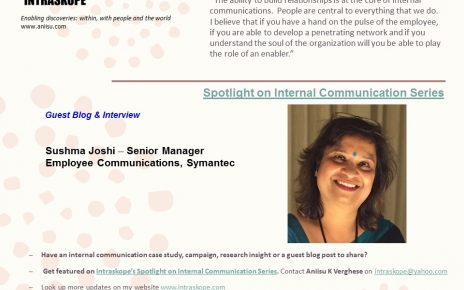The modern workplace needs new thinking. Understanding your employees has never been more pivotal to crafting an employer brand that truly resonates. Yet, even the most prestigious organizations can fumble when it comes to deciphering the intricate heartbeat of their staff, often ending up with expectations misaligned and reputations tarnished.
In the wake of the pandemic, a seismic shift has occurred. Employees, in a remarkable display of agency, have started to redefine the rules. They’re becoming discerning, choosy, and are less likely to forgive and forget. Many watched in dismay as some companies exploited the chaos of the pandemic for their own gains, and the scars of that betrayal remain unhealed.
Moreover, a growing chorus of voices is asking for organizations to shoulder more significant responsibilities in combating the climate crisis and other societal challenges. The resulting activist pressure has forever transformed the delicate dance between employers and employees. Assumptions that once stood as pillars in the realm of employer branding now seem flimsy at best.
Assumption 1: “Need to Know” Suffices for Communication
The fear of leaks has kept leaders from being forthright with their teams, inadvertently breeding discontent and distrust. What might seem like a shrewd move in the short term often backfires as trust erodes. Employees, left in the dark, seek information elsewhere, and the job market increasingly favors them.
According to the 2023 LinkedIn Future of Recruiting study, 64% predict that the future of recruiting will lean favorably toward candidates and employees, not employers.
Assumption 2: Feedback Goes into a Black Hole
Surveys and polls are commonplace, but transparency in their aftermath is a rare gem. Organizations often shy away from sharing unpalatable truths or gloss over them. This lack of honesty breeds skepticism among employees, creating a vicious cycle where valuable feedback becomes scarce.
Assumption 3: Pay and Benefits Trump All
While competitive compensation is crucial, it’s not the sole magnet for top talent. Employees yearn for more than just a paycheck; they crave a sense of belonging, respect, and recognition for their contributions. A fixation on pay alone signals a skewed set of priorities, as research indicates that a better workplace culture often trumps a fatter paycheck.
Assumption 4: Staff Disinterest in Key Decisions
Gone are the days when employees merely clocked in and out. They want to invest in organizations that mirror their values and involve them in shaping the decisions that impact their work and lives. This collaborative approach fosters a deeper connection to a common purpose and cultivates trust and engagement.
Assumption 5: Only Junior Staff Need Mentoring
The belief that mentoring is solely for junior staff overlooks a vital truth: managers often require guidance and support just as much. Gartner notes that managers find themselves squeezed between meeting leadership expectations and catering to their teams. Recognizing this, offering managerial support, especially in navigating the complexities of hybrid and remote work, can significantly boost their engagement and efficacy.
By dismantling these assumptions, organizations can harmonize their employer branding with the ever-evolving reality of the modern workplace, paving the way for a brighter future of work, workplaces, and workforces.
#workplace #change #employerbrand #employerbranding #workforce #work #engagement #experience #internalcomms #IC #hybrid #remotework #leadership #pay #benefits



